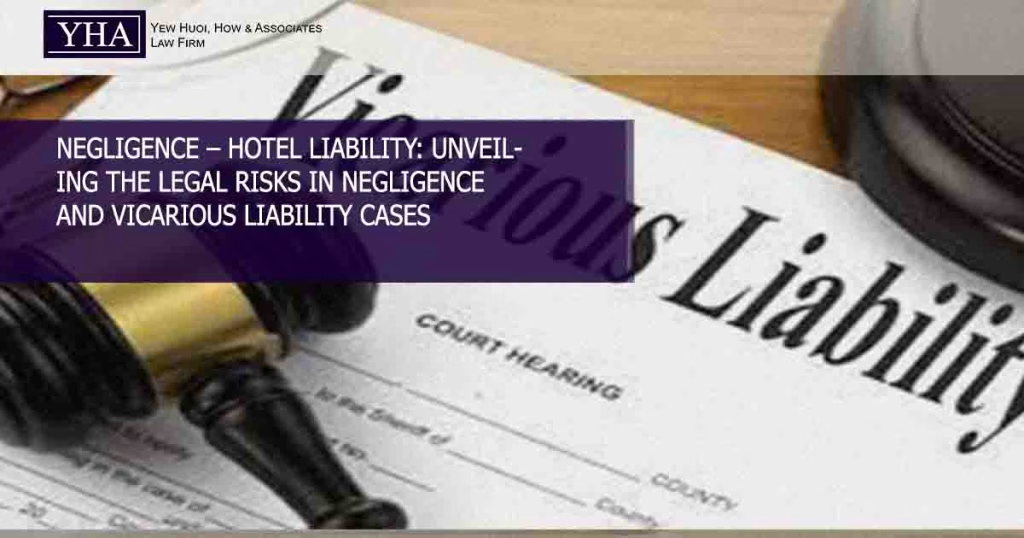Illustrative Scenario
X, the deceased, checks into the ABC Hotel and is found dead in his room several days later. Investigations reveal two suspects who allegedly used an access key card belonging to Y, a housekeeping assistant at the hotel, to enter X’s room.
The question arises whether X’s widow can bring a negligence claim against Y, and whether ABC Hotel and its owner can be held vicariously liable for Y’s actions if Y is found negligent.
Legal Principles
- Burden of Proof: In a negligence claim, the burden of proof lies entirely with the party making the allegation. The claimant must establish their case before the burden shifts to the opposing party.
- Elements of Negligence:
- The defendant owed the plaintiff a duty of care.
- The defendant breached that duty of care.
- The plaintiff suffered damage as a direct result of the breach, and the damage is not too remote.
- Hotel’s Duty of Care:
Courts have consistently held that hotels and their employees are responsible for safeguarding guest room keys. Hotels may be found negligent if unauthorized individuals gain access to guest rooms due to the hotel’s failure to properly secure keys. The duty of care extends to ensuring guest safety at all times.
Application to the Scenario
In this scenario, Y, as a housekeeping assistant responsible for maintaining guest rooms, had a duty to restrict access to the rooms strictly to authorized personnel. Y should have directed any unauthorized individuals to the hotel’s reception for verification. If Y allowed unauthorized access, Y could be held liable for negligence.
Vicarious Liability of the Hotel
ABC Hotel and its owner may be held vicariously liable if Y’s negligence was foreseeable and occurred during the course of Y’s employment. Given that Y’s actions directly led to harm suffered by X, it is likely that ABC Hotel and its owner would be found vicariously liable for Y’s negligence.
Reference Cases
- Wang Cuilin (Suing as the lawful wife and the Administrator of the estate of Xie Ning) v. Nurul Suhaida bt Dahlan & Ors [2024] MLJU 1920
- Wong Thin Yit v. Mohamed Ali [1971] 2 MLJ 175
- Teoh Guat Looi (the Lawful Widow) Claiming for Herself and Her Two Children as the Defendants of Tay Kok Wah, Deceased v. Ng Hong Guan [1995] 1 CLJ 717
- Projek Lebuh Raya Utara-Selatan Sdn Bhd v. Kim Seng Enterprise (Kedah) Sdn Bhd [2013] 6 CLJ 958
- John C Fleming & Anor v. Sealion Hotels Ltd [1978] 2 MLJ 440
- Kinta Riverfront Hotel & Suites Sdn Bhd v. Chang Yok Kee & Anor [2020] MLJU 61

